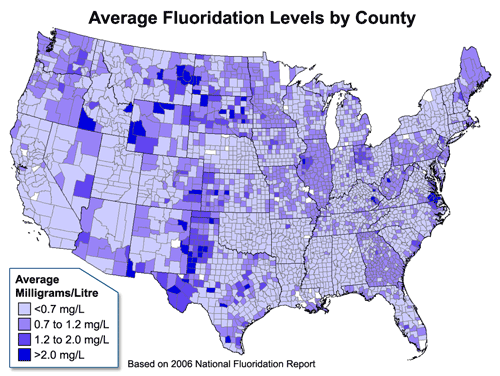Fluoride in drinking water would no longer be required under a bill passed by the Arkansas House Thursday. Representative Jack Ladyman (R-Jonesboro) sponsored the legislation allowing local water authorities, serving over 5,000 people, to opt-out of a 2011 fluoride requirement. Ladyman questioned the validity of science that concludes fluoride is beneficial to dental health.
“All the science, the data, the studies related to the subject should be reviewed, studied, and vetted. I also believe that this vetting process should be made by the people at the local level,” said Ladyman.
Democratic Representative Deborah Ferguson of West Memphis said the evidence that fluoride in the water is an important health measure is un-debatable.
“This safe and effective public health measure like vaccines against other preventable childhood diseases suffers from a perception of risk that I assure you does not exist,” said Ferguson.
But first and foremost Rep. Ladyman contended the bill was not about the benefits or harms of fluoride, “let me state, this is a local control bill and not a bill to support of oppose the addition of fluoride to the drinking water,” said Ladyman. “If you live in Texarkana, Gravette, Corning, or Lake Village, Little Rock is a capital far, far away.”
Representative Justin Boyd (R-Fort Smith) voted against the measure and said the decision to fluoridate is best left at the state level because it affects the entirety of the public’s contribution to healthcare.
“Most of Washington County has fluoridated water, Sebastian County mostly un-fluoridated water,” said Boyd. “Arkansas medical, dental expenditures for kids were $8.84 in Washington County and $12.58 in Sebastian County.”
Rep. Boyd contended a decision at the local level would result in more far-reaching consequences, “for those of you in fluoridated areas, why should you shoulder more of the Medicaid burden than those of exercising the option to not fluoridate?”
The impact of a potential local decision to not provide fluoridation was an area Rep. Ferguson also explored during her remarks on the House floor.
“The individuals who will most negatively be affected by this will be the economically disadvantaged citizens primarily children who unlike those of us in this room cannot afford private insurance or preventative dental care. And absolutely the most effective way to help children’s teeth is not brushing your teeth through topical fluoride but it is ingested fluoride through the water,” said Ferguson.
But the majority in the House, which approved the measure 60 to 34, rejected the argument that based on public health evidence the decision is best made at the state and not local entity level. Representative Josh Miller (R-Heber Springs) was among those speaking in favor of the bill.
“Number one folks, I am not a scientist or very educated. Let me rephrase that, ‘I ain’t a scientist.’ I am not going to dispute any of the scientific facts that our colleague Representative Ferguson just gave.” Rep. Miller continued, “I am however a resident of Cleburne county and my district does cover many of the towns that Rep Ferguson described….If the residents in these counties had the opportunity to voice their opinions, they’d have a lot better opportunity to voice their opinions concerning this matter at the local community water system’s board meeting than they do to be in here today.”
Democratic Representative Vivian Flowers of Pine Bluff, an opponent of the bill, was weary of comments suggesting a lack of scientific knowledge was acceptable before casting a vote on the issue.
“We are charged with doing the best thing for our district. Whether that’s based on the needs of our district, and certainly whether that’s based upon science. The science is important,” said Flowers. “I think that when we look at the fact that in 2011 we passed a bill to mandate fluoridation of our water it was based upon the science. If we’re going to make those changes we need to be informed.
___________________________________________________________________________

